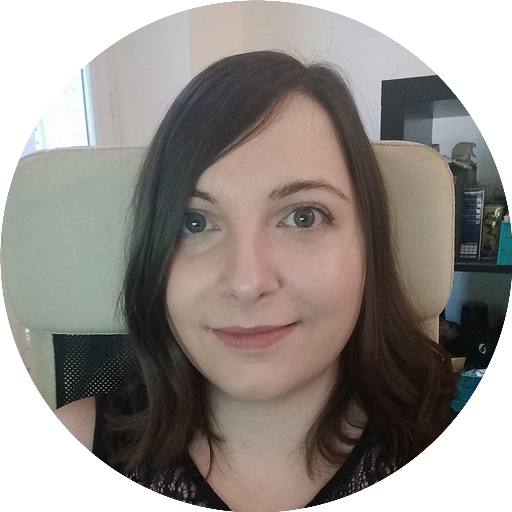On October 26-28, 2022 the World Ethical Data Foundation will host its third online forum. The event will address “the urgent ethical and practical questions around the use and future of data” such as information security, human rights, artificial intelligence, and much more. Open to all, it should be of particular interest to privacy and IT professionals — but translators should care, too!
Table of Contents
World Ethical Data Foundation
The World Ethical Data Foundation is a non-profit organization that explores — and helps others explore — issues and opportunities around data and knowledge technologies. Through research and discussions, it contributes to the development of solutions that strike the right balance between risks and benefits. Its missions include:
- fostering collaboration between “people and institutions of all perspectives, traditions, and cultures”
- providing guidance to help companies and governments make the right decisions to protect human rights and democracy when processing data
- defending democracies — “extraordinarily vulnerable architectures, given the rewards that exploiting them can bring” — by providing policy guidance and practicable solutions
World Ethical Data Forum 2022
The World Ethical Data Forum, which first took place in 2018, is a logical continuation of the Foundation’s work. The 2022 Forum will let anyone “discuss and debate the full scope of interrelated issues around the entire digital ecosystem.” With over 100 speakers, it should indeed address a wide range of topics.
I first heard about the event from John Marshall, director of the Foundation and CEO of the Forum, in the International Association of Privacy Professionals (IAPP) LinkedIn group. According to John, this new Forum will “break new ground in data and data technology” in both substance and form.
Defining the Future of Data
As the Foundation explains, “the consequences of [data-driven technologies’] use and abuse are felt around the world — in cyberwarfare, climate research, journalism, and beyond — yet the issue [of who accesses and controls the data and information they produce] remains underexplored.”
With the third World Ethical Data Forum, the Foundation wants to give everyone the opportunity to “define the most crucial discussion of our time,” namely “change the way information and its technologies are deployed” and “give ourselves a shot at improving their consequences.”
Whether from “government institutions, big tech, corporations, media, startups, academia, entertainment, or civil society,” everyone is invited to join the conversation.
Addressing All Things Data
On the agenda of the World Ethical Data Forum are 18 tracks:
- Artificial intelligence, e.g. “AI Ethics: from Principles to practice”
- Cybersecurity, e.g. “Darker side of gaming, esports, and kids”
- Data and gender, e.g. “Feminism in AI”
- Data and media, e.g. “Censorship and Manipulation”
- Digital citizenship, e.g. “Initiatives to empower citizens”
- Diversity, equality, and inclusion, e.g. “Women in Tech: Perspectives from Scotiabank”
- Environment and technology, e.g. “Redefining Capitalism with Ecosia”
- Ethics and philosophy, e.g. “Should we use AI to keep people safe online?”
- Governance and policy, e.g. “Democracies and data governance in LATAM”
- Human and digital rights, e.g. “The future of digital rights: where are we and where are we going?”
- Impact, e.g. “Data-driven strategies to improve the student journey”
- Insights from academia, e.g. “Neuroethics and data privacy”
- Media and culture, e.g. “Data and Creative Labour Markets”
- Open source, e.g. “Open Source vs the Cloud: The Case for Local First Software”
- Policy and governance, e.g. “The Law of Mass Surveillance in the Age of Artificial Intelligence”
- Privacy, e.g. “Data, Encryption and Human Rights”
- Privacy and surveillance, e.g. “Cybersecurity and Human Rights”
- Whistleblowing and censorship, e.g. “The suppression of informational access by a nation which asserts it is in a ‘Perpetual War’”
A World-Class Lineup
Every year, the Foundation prides itself on gathering “the most brilliant and influential minds from around the world” — “leading voices across all sectors, industries, and institutions.” According to John Marshall, the lineup “is already utterly world class.”
Over 100 speakers should take part in the third edition, 81 of whom are listed on the World Ethical Data Forum’s website at this time. Activists and CEOs will present alongside journalists, lawyers, scholars, and other professionals from AI, security, IT, and more.
Inclusivity and Other Strong Values
Built on strong values, the third World Ethical Data Forum aims to be as inclusive as possible, on a global scale. Considerable thought was given to factors that could prevent attendance, including poverty, time zones, surveillance, censorship, disabilities, and lack of language proficiency.
-
Price: access to the Forum is free to make the discussions accessible “to those who most need to hear them, and most need to be heard.”
-
Infrastructure: the Forum “will be run on open-source, interoperable, decentralised and privacy-respecting event infrastructure” — “based on the Matrix and Element protocol” (both partners of the event).
-
Accessibility: the team behind the World Ethical Data Forum consulted with the World Institute on Disability to make the right decisions. For instance, subtitles should be available for everything and sign language interpreting will be offered for as many talks as possible. The “unforgivably low accessibility of the web” will also be the topic of a talk by WID.
-
Multilingualism: according to John, speakers are welcome “to participate in their native language.” For instance, “the most prominent experts and organisations in South America” will speak in their native Spanish or Portuguese across all three days. Translation and interpreting will help make the World Ethical Data Forum more accessible.
Why Should Translators Care?
For translators who specialize in some of the topics that will be addressed during the forum — such as cybersecurity, blockchain technology, and human rights — the event is an opportunity to update or expand our knowledge. But if you are a translator working in other fields, why should you attend?
Let’s take our personal data as an example. Take a moment to think about everything you do online as part of your job. If you are anything like me, you probably do a ton of research during a translation project to really understand the source text and find the right terminology.
Example #1: Cookie Walls
Search engine results sometimes return pages that you can’t access without accepting cookies, unless you become a paid subscriber of the publication. When you are trying to access a website for the needs of a specific project, you may not want to subscribe. Before accepting cookies, do you ever wonder:
- What do these cookies do?
- How do they help the website make money?
- What is so valuable about the data they collect?
- Who will buy my data from this website?
- What does this data reveal about me?
- How could this data collection affect me?
Example #2: Freebies
Sometimes you come across a white paper or another document that could help you understand your topic or find a term you need, but your name and email address are required to download it. You can either enter your data or look for another document. Before giving in, do you ask yourself:
- Who is behind this website?
- Am I just signing up for yet another newsletter I don’t want?
- If not, how will my data be used?
- Who will access my data?
- What is this company doing to protect my data?
- How can I get them to delete my data?
Example #3: Profiling
We all leave a trail online. If you don’t use private navigation or an ad blocker, you probably see ads about products you researched for work and would never use yourself. At least, you are covering your tracks! But whether or not these ads are relevant, they raise important questions:
- How did the ad network learn information about me?
- Out of the hundreds of websites I visited, which ones shared information about me with other sites?
- Are these ads collecting more data about me?
- Who else could be interested in my data?
- How can I protect myself?
Example #4: Surveillance
Some colleagues joke about ending up on watchlists because they just completed a translation on a sensitive topic. But what if it wasn’t a joke? Have you ever wondered:
- Why would they end up on a watchlist — can security agencies identify people who search for specific keywords?
- Can the wrong translation project get me in trouble?
- Could this keep me from working with certain organizations?
- What if some of my searches revealed information about my clients or their companies to third parties?
- Could a simple Google search constitute a breach of my confidentiality or data protection obligations?
And Much More
These examples and questions have only scratched the surface. As we saw earlier, the word “data” raises a lot more questions, and you may be interested in a different area, such as artificial intelligence (hello, machine translation!).
For instance, as a legal translator specializing in data protection, I look forward to discussions around privacy and data rights. But “as a person,” so to speak, I find many other areas appealing — or concerning!
I hope the examples above will make you want to look into the event and take a few hours — or more — to hear experts discuss some of the crucial questions around the future of data.
Register and Spread the Word
Since WEDF doesn’t “track, target, or otherwise market to attendees in any of the now all-too-common ways,” word-of-mouth is essential to the event’s success — hence this post.
Once you’ve registered, make sure to spread the word with anyone in your network who “would benefit from hearing these discussions, or might want to ask questions or contribute their own views.”
Do you plan to attend? What topics are you most interested in? Are there any speakers we shouldn’t miss? Let me know on LinkedIn!
Added on October 29, 2022:
Watch the Replays
Now that the World Ethical Data Forum is over, you can watch replays with English and Spanish subtitles on the WEDF website:

Gwendoline Clavé
Hello! I’m an English-to-French translator based in Marseille, France. When I’m not translating legal documents or SEO content for IT companies, I’m rewriting legalese into plain language. On this blog, I share thoughts and information on diverse topics at the crossroads of translation, law, and IT.

